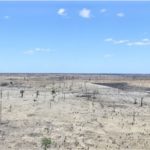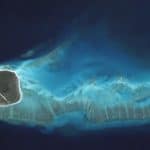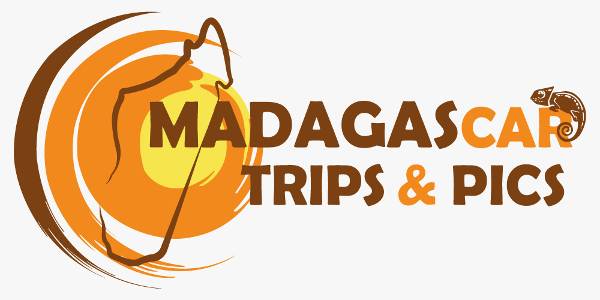I am often contacted by independent & adventurous self-drivers who are very disappointed when I reply that it is not common in Madagascar and above all very dangerous to rent a car and drive it yourself and that I generally advise against it.
I will explain why I advise against this in the following article for all those who are interested in this topic.
Self-driving in Madagascar is not as easy as in other countries in Africa.
It is possible in and of itself, for a few years now you can find some car rental companies that rent their vehicles without a driver.
But you should already know the following points in advance:
* When renting the car, write down exactly everything, the most inconspicuous scratch can be charged after the return of the vehicle.
* You need much more papers in Madagascar than in Europe and the police checks are very frequent. Nothing must be missing and the prescribed equipment must be complete (fire extinguisher, first aid kit with precise equipment).
* A European International Driving License is valid and the categories are identical to those in France. You can drive up to 9 seats and up to a total weight of 3.5 tons with a car license. Beware of large four-wheel drive cars that are often registered for 10 people, which can cause trouble at controls because you need a bus driver's license even if only one person sits in the car.
* There is a "TÜV" on Madagascar (the Austrians and Swiss forgive me for sure because I do not know how the "TÜV" is called there). Amazing when you see the general condition of the vehicles, commercial vehicles must even every 4 months to the test. There is a booklet with all the entries and you should have that and see if the car has passed the last MOT and when it is due again.
* The car is insured but you should know that it is only a paper that you have to have but without any guarantee from the insurance company and this should be well noted. The possible material and physical damage you pay yourself even if you are "well" insured!
You can drive yourself in Madagascar and as long as there is no accident it is quite easy for experienced self-drivers who know Africa and the driving conditions there to some extent.
Very important: as a European you are always to blame even if you drive very well and is in no way to blame for the accident, has not drunk anything (even if the other is drunk but Madagascan). If there are physical damages or deaths, you can find yourself in prison in a very short time and sometimes even worse...I had already mentioned that the insurance neither pays for the damages nor for the injured/dead. Who pays then? The driver of course.
* It is very important if you want to drive yourself to speak French but even French is often not enough, most Malagasy speak only Malagasy. Rental contract, police roadblocks, there is no Navy and (almost) no traffic signs, so you have to be able to ask for directions often.
* Driving by yourself in Antananarivo is not advisable, totally chaotic traffic, no traffic lights, almost no signposts, most reckless driving of other road users and mainly the shared cabs (Taxi Be). The chaotic driving is responsible for the constant traffic jams, the cars approach the intersections from all sides at the same time and block them like self-blocking cobblestones. The exhaust fumes from the often smoking vehicles contribute to high pollution levels in the city. One should also consider the traffic jams when one has important appointments or has to go to the airport. Even if you have rented a car, it is better to park it in safety and take a cab to the city.

* It is important to have a very good car, you have to take into account everything. Externally they are always very clean and shiny, a breakdown somewhere without towing service and without garage if you do not talk to people can become problematic. There are always helpful people without tools and without spare parts who repair in the Malagasy way which is sometimes useful and helpful and sometimes brings more problems and damage. One should never leave a vehicle without supervision at a mechanic or in a garage, less than one night is needed to change an engine or at least to replace the original parts with junk or very inferior Chinese spare parts.
* I had already mentioned that there is almost no towing service (the few that exist come from Tana). The same is true for injured people, but there are also no ambulances, no ambulances, no fire department that come to help in case of accidents. Drivers and other road users have to rescue the injured and drive them to the nearest hospitals.
* By far the most dangerous route is Antananarivo to Tamatave, constant traffic of trucks that drive from the port city on the east coast of Madagascar everything that is imported day and night to the capital. On the RN7, the most dangerous zones are in Tana, from Tana to Antsirabe and from Ambositra to Fianarantsoa.
Night driving is very dangerous, to be avoided at all costs. The daily stages must be planned accordingly. On a road in good condition, you should plan for an average speed of 50km/hour.
The roads are very narrow and the public vehicles mostly hopelessly overloaded, in the curves they can often only "cut" the corners and emerge totally left from a bend otherwise they (mainly with the narrow Mazda minibuses) simply tip over with the high & heavy load. * * You should drive a car here like you drive a motorcycle in Europe: you have to overlook everything, be constantly alert, foresee the mistakes of others and the danger zones. The roads are often very poorly maintained and huge potholes, broken bridges and other "traps" can be the reason for accidents. The import of the popular Mercedes Sprinters is also responsible for many accidents because they can drive much faster than the Japanese minibuses.

* Often accidents are on bridges or other narrowings on the roads although no traffic, simply because both vehicles are simultaneously racing at each other, in their logic the smaller should give priority to the larger vehicle. In a somewhat more civilized variant, the vehicle that first signals the other with its high beams has the right of way. When overtaking, the horn is much more important than the turn signal. This is how it works if you have to overtake a truck for example: honk briefly so the driver knows you want to overtake and then watch the truck's turn signals if it still has them). Turning right means you can overtake and turning left means oncoming traffic is in sight or the truck has to swerve to the left itself.
* Mainly when crossing towns and villages you have to be very careful, children, animals, cyclists, rickshaws, buses can suddenly be on the road. At night it is totally inadvisable, no lighting of roads, vehicles and people. Experienced Africa drivers adjust the right headlight so that it illuminates not the road but the right sidewalk.
* There are very few paved roads and mainly during the rainy season climatic conditions can isolate whole parts of Madagascar and the vehicles left there can't move until the road or bridge is repaired. Mainly for dirt roads it is very important what to do and what not to do at which time of the year.

* Driving on difficult tracks is seasonal for the first time. You must have very well equipped four-wheel drive vehicles, a four-wheel drive is far from a guarantee that you will get through. Toyota Landcruiser II are in my opinion the best vehicles for extreme tracks, followed by other Landcruisers and by Land Rover and Nissan Patrol. You should never do such tours with a single car, the best would be a 4X4 with a local driver and the others to drive yourself. Snorkels are also not a luxury mainly on the east coast or during the rainy season.
* Between November and April, always take into account the weather forecasts and cyclones.
I hope that this post is useful and above all avoids that a vacation in one of the most fascinating countries in the world turns into a nightmare, Madagascar has its own rules that are very far from the European logic. You have to know and understand them and adapt to them, which is almost impossible if you don't have instructions.
For the hardcore Africa drivers who are still interested in such experiences and adventures I am happy to provide additional and more specific information.
















